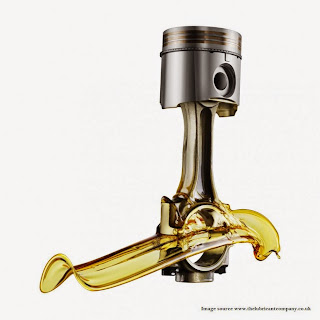Breast Imaging Market: Innovations Shaping the Future of Breast Healthcare
Introduction
Breast health is of paramount
importance, and advancements in medical technology have played a vital
role in improving breast imaging techniques. The Breast Imaging Market
is witnessing steady growth as innovative technologies continue to
transform the way breast conditions are diagnosed and treated. In this
article, we will explore the current state of the Breast Imaging Market,
key technologies driving its growth, and the significant impact it has
on breast healthcare.
Market Growth
The global breast imaging market
is projected to reach USD 6.6 billion by 2028 from USD 4.4 billion in
2023, at a CAGR of 8.5% from 2023 to 2028. The major factors driving the
growth of this market include rising awareness campaigns, increasing
public-private investments, and lucrative opportunities in emerging
markets.
Download PDF Brochure: https://www.marketsandmarkets.com/pdfdownloadNew.asp?id=897
- Understanding Breast Imaging and Its Significance
Breast imaging refers to various diagnostic techniques designed to detect abnormalities in breast tissue. Early detection plays a crucial role in enhancing treatment outcomes for breast conditions, including breast cancer. Breast imaging modalities aid in identifying lesions, tumors, and other anomalies, empowering healthcare professionals to make well-informed decisions regarding patient care.
- Market Overview and Growth Factors
The Breast Imaging Market has been experiencing substantial growth over the past few years and is projected to continue its upward trajectory. Several key factors contribute to this expansion:
a) Increasing Prevalence of Breast Cancer:
The rising incidence of breast cancer worldwide has heightened the
demand for advanced breast imaging technologies that can detect cancer
at its early stages, facilitating timely intervention and improved
survival rates.
b) Growing Awareness and Screenings:
Increased awareness of breast health and the importance of regular
screenings have led to a surge in the number of women undergoing breast
imaging examinations, further driving market growth.
c) Technological Advancements:
Continuous research and development efforts have led to the
introduction of cutting-edge breast imaging technologies, such as
digital breast tomosynthesis (DBT) and automated breast ultrasound
(ABUS), which offer superior image clarity and accuracy.
d) Supportive Government Initiatives:
Governments across the globe are implementing breast cancer screening
programs and initiatives to improve breast healthcare, providing a boost
to the market.
- Key Technologies in Breast Imaging
a) Mammography:
Mammography is the most widely used breast imaging technique. It
involves using low-dose X-rays to capture images of breast tissue.
Digital mammography and digital breast tomosynthesis are advanced forms
of mammography that offer improved visualization of breast
abnormalities.
b) Breast Ultrasound: Breast
ultrasound uses soundwaves to create images of breast tissue. It is
particularly useful in distinguishing between solid masses and
fluid-filled cysts and is commonly used for evaluating breast lumps.
c) Magnetic Resonance Imaging (MRI):
Breast MRI provides detailed images of breast tissue using powerful
magnets and radio waves. It is often employed to evaluate high-risk
patients or to further investigate abnormalities detected in mammography
or ultrasound.
d) Molecular Breast Imaging (MBI):
MBI is a functional imaging technique that uses a small amount of
radioactive material to detect metabolic activity in breast tissue,
aiding in the early detection of breast cancer.
e) Breast Thermography:
This non-invasive technique involves capturing infrared images of
breast tissue to detect variations in temperature, potentially
indicating areas of concern.
- North America: Leading the Breast Imaging Market
As of the latest available data, North America holds the largest share in the Breast Imaging Market. The region's dominance can be attributed to the high prevalence of breast cancer, robust healthcare infrastructure, increased awareness about breast health, and favorable reimbursement policies.
- Europe: Embracing Technological Advancements
Europe follows closely behind North America in terms of market share. The region's adoption of advanced breast imaging technologies, along with supportive government initiatives promoting breast cancer awareness and screening, have contributed to its growth.
- Asia-Pacific: Emerging Opportunities
The Asia-Pacific region presents significant growth opportunities for the Breast Imaging Market. The rising prevalence of breast cancer, increasing healthcare expenditure, and growing awareness about breast health in countries like China, India, and Japan are driving the market's expansion in the region.
- Challenges and Future Outlook
While the Breast Imaging Market shows promising growth prospects, challenges such as high costs associated with advanced imaging systems and a lack of skilled healthcare professionals in some regions need to be addressed. Moreover, ongoing research and development efforts are focused on developing innovative technologies that offer enhanced diagnostic accuracy and patient comfort.
Request Sample Pages: https://www.marketsandmarkets.com/requestsampleNew.asp?id=897
Conclusion
The Breast Imaging Market
is witnessing continuous growth, driven by factors such as the
increasing prevalence of breast cancer, growing awareness about breast
health, and technological advancements in imaging modalities. Early
detection and accurate diagnosis through breast imaging play a crucial
role in improving treatment outcomes and saving lives. As the market
continues to evolve, healthcare providers, researchers, and
manufacturers must collaborate to ensure that innovative breast imaging
technologies are accessible to women worldwide, leading to a healthier
and more empowered future for breast healthcare.
Contact:
Mr. Aashish Mehra
MarketsandMarkets™ INC.
630 Dundee Road
Suite 430
Northbrook, IL 60062
USA : 1-888-600-6441
sales@marketsandmarkets.com

Comments
Post a Comment